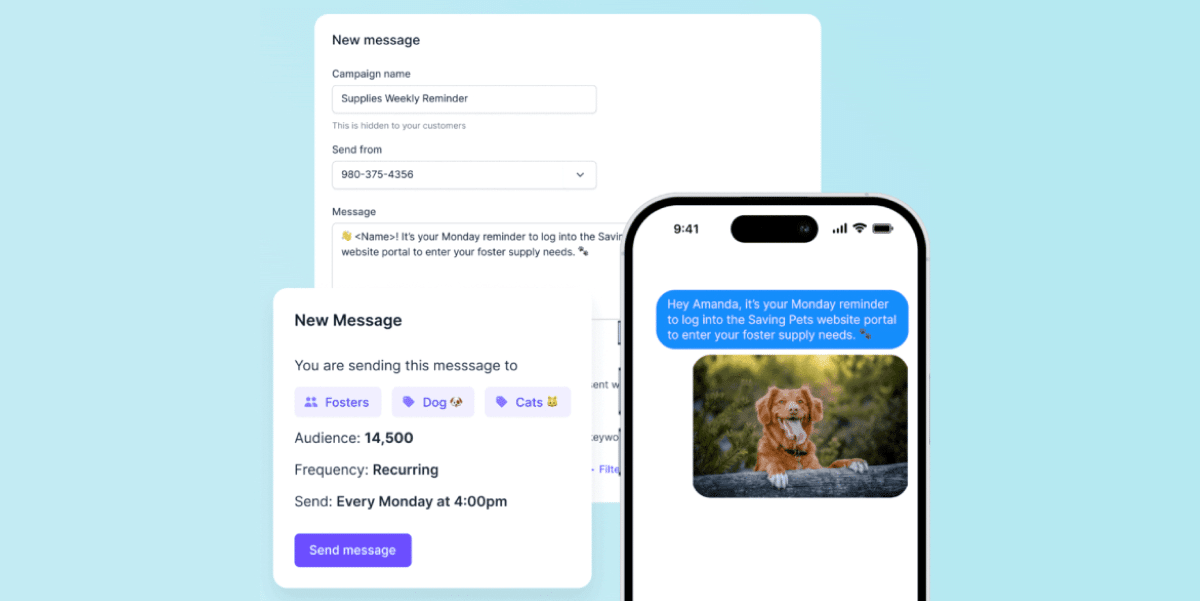SMS technology has made an indelible mark on the world of business communication. After starting out as a simple messaging app, it has grown into a complex system that all companies around the world use. This journey, which brought up a lot of new ideas and the need for faster, more reliable communication, shows how versatile SMS is and how important it will continue to be in the digital age. In this article, we will look at the history and growth of business SMS technology and see how it has become an important part of modern business strategies.
The Dawn of SMS Technology
Short Message Service (SMS) technology has been around since the early 1980s. The first text message was sent in 1992. Text messages (SMS) were first made for casual, one-on-one conversations. It did not take long for businesses to see that they could be used to quickly and directly reach customers. SMS was popular for marketing, customer service, and internal communication because it was easy to use, available everywhere, and quick.
The Rise of Business SMS
Businesses really started to use SMS in the early 2000s. They used it for many things, like advertising, reminding people of appointments, and sending out service alerts. Around this time, SMS gateways and platforms started to appear, which let businesses send a lot of messages at once and better manage their communications. The basic ideas behind these early systems set the stage for more advanced business uses of SMS technology.
Integration and Innovation
As technology got better, SMS became easier to connect to other business systems. For example, CRM (Customer Relationship Management) software started to include SMS features, which let businesses send more personalized messages and keep better track of how they interact with customers. During this time of rapid change, automated messaging services, chatbots powered by AI, and advanced analytics tools were created. All of these tools used SMS to improve communication with customers and the efficiency of business operations.
The Modern Landscape
The main type of business SMS technology used today are all-in-one platforms that give businesses a variety of ways to communicate with their customers. Traditional SMS has its limits, but these platforms go beyond them by providing features like multimedia messaging (MMS), advanced segmentation and targeting, automated workflows, and the ability to connect with email and social media marketing campaigns.

Photo Courtesy: Textla
Textla is a great example of modern business SMS technology. It is a platform that shows how flexible and powerful modern SMS solutions can be. Textla gives businesses a complete way to use SMS marketing by combining the regular benefits of SMS, like high open and read rates, with more advanced features, like automation, personalization, and detailed analytics. This lets companies make campaigns that are very specific, interesting, and connect with their audience on a personal level.
Challenges and Adaptations
There have been some rough spots along the way for business SMS technology. Problems like spam, worries about privacy, and changing rules and regulations have made it necessary to always adapt and come up with new ideas. Businesses and SMS platform providers have had to deal with these problems by putting in place strict security measures, following compliance standards like GDPR, and creating more advanced ways to manage consent.
The Future of Business SMS
Looking ahead, the future of business SMS technology looks bright. New trends show that communication solutions will continue to become more integrated, interactive, and smart. RCS (Rich Communication Services) and other technologies like it promise to make the lines between SMS and other digital platforms even less clear, making messaging experiences richer and more interesting.
Also, as AI and machine learning technologies keep getting better, SMS platforms will likely get even better at personalizing messages, predicting how customers will act, and automating complicated communication processes. Without a doubt, these improvements will make SMS a more useful tool for operations, marketing, and keeping in touch with customers.
Conclusion
The history of business SMS technology is a testament to the enduring value of simple, direct communication in the digital age. From its simple beginnings to its current state as a high-tech way for businesses to talk to each other, SMS has always changed to meet the needs of both businesses and customers. Digital platforms like Textla are examples of this change because they give businesses unmatched ways to connect with their audience in meaningful ways.
It is easy to see where business SMS technology is going in the future: it will become more integrated, come up with new ideas, and have a bigger impact. Even though the world is becoming more connected, being able to talk to customers clearly, no matter where they are, is still a key competitive advantage. SMS is going to stay at the forefront of this communication revolution for years to come because it is simple, everywhere, and quick. It will drive business strategies and customer engagement.
Published By: Aize Perez








